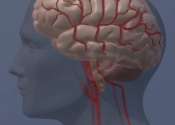Scientists discover key regulator of blood vessel formation
New blood vessels branch out of preexisting ones is via a process called angiogenesis. Although this is essential for survival, development and wound healing, on the flip side, it also feeds and progresses malignant tumors, ...
Aug 29, 2017
0
1







